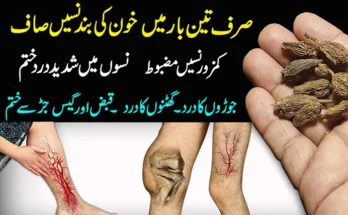Maintaining a bright, white smile is often a priority for many women. While daily dental care is essential, sometimes teeth can become stained or discolored due to various factors like diet, lifestyle, and aging. If you’re looking to enhance your smile through teeth whitening, there are several effective and safe methods available. In this article, we’ll explore teeth whitening tips specifically tailored for women, helping you achieve a radiant smile.
Why Choose Teeth Whitening?
Having a white smile not only boosts confidence but also contributes to a youthful appearance. Women often seek teeth whitening to combat stains from coffee, tea, wine, and tobacco, as well as to counteract natural discoloration that occurs with age.
Effective Teeth Whitening Tips for Women
Here are some proven tips to help whiten your teeth effectively:
1. Professional Teeth Whitening
Consider professional teeth whitening treatments offered by dentists. These treatments use stronger whitening agents than over-the-counter products and can provide quicker and more noticeable results. Dentists can customize the treatment based on your dental health and desired outcomes.
2. Over-the-Counter Whitening Products
There are various over-the-counter teeth whitening products available, such as whitening toothpaste, strips, and gels. Look for products with the American Dental Association (ADA) Seal of Acceptance to ensure safety and effectiveness.
3. Whitening Toothpaste
Use a whitening toothpaste daily to help remove surface stains and prevent further discoloration. Whitening toothpaste typically contains mild abrasives and polishing agents that gently scrub away stains.
4. Healthy Diet Choices
Opt for a balanced diet rich in fruits, vegetables, and dairy products. Crunchy fruits and vegetables like apples and carrots can help naturally clean and whiten teeth by removing plaque and surface stains.
5. Limit Staining Beverages
Reduce consumption of staining beverages such as coffee, tea, red wine, and dark sodas. If you do consume them, use a straw to minimize contact with your teeth or rinse your mouth with water afterward.
6. Quit Smoking
Smoking not only affects your overall health but also contributes to yellowing and staining of teeth. Quitting smoking can significantly improve the brightness of your smile and overall oral health.
7. Oil Pulling
Oil pulling is an ancient practice that involves swishing oil (such as coconut oil) around in your mouth to remove bacteria and debris. Some believe it can also help whiten teeth naturally over time.
8. Baking Soda
Mix a small amount of baking soda with water to form a paste, then gently brush your teeth with it once a week. Baking soda is mildly abrasive and can help remove surface stains from teeth.
9. Apple Cider Vinegar Rinse
Although acidic, diluted apple cider vinegar can be used occasionally as a rinse to help whiten teeth. However, use it sparingly and rinse your mouth thoroughly afterward to protect your tooth enamel.
10. Maintain Good Oral Hygiene
Regular brushing, flossing, and dental check-ups are essential for maintaining white teeth. Plaque buildup can contribute to staining, so keeping your teeth clean and healthy is key.
Considerations Before Whitening
Before starting any teeth whitening regimen, consider the following:
- Dental Health: Ensure your teeth and gums are in good condition. Whitening products can cause sensitivity or irritation, especially if you have dental issues.
- Consultation: Consult with your dentist to determine the best whitening option for your specific needs and to address any concerns you may have.
- Follow Instructions: Whether using over-the-counter products or professional treatments, follow the instructions carefully to achieve safe and effective results.







